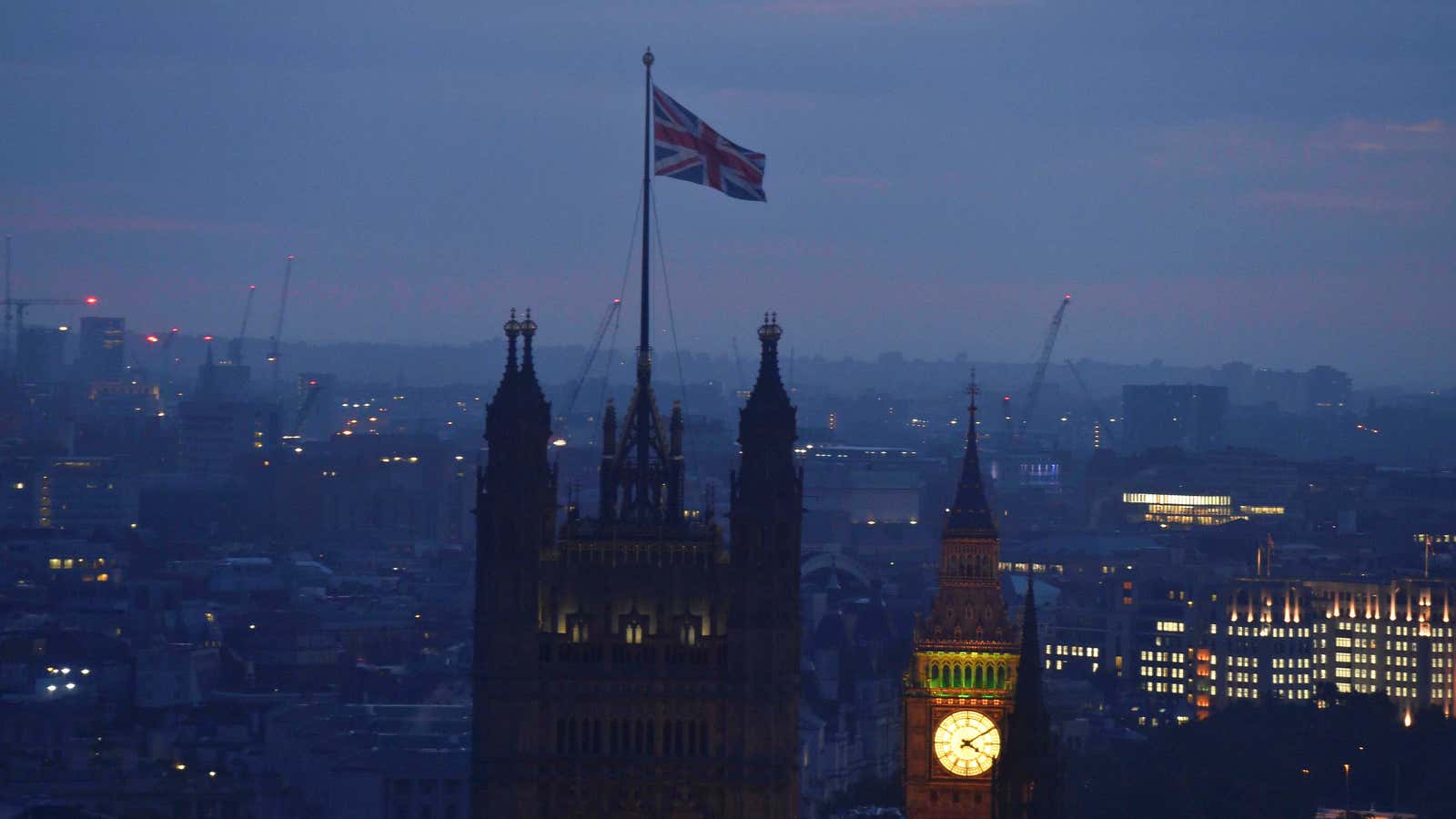After Britain’s historic vote to leave the EU, markets are in free fall, and UK politicians who campaigned in favor of leaving are suddenly in the awkward position of urging calm amid the chaos.
Recriminations are underway. The “remain” campaign says the market reaction is what they predicted, and “leave” advocates say the government’s fear-mongering got us here.
Andrea Leadsom, a conservative member of Parliament and vocal advocate of “leave” said the market reaction was expected. “We need calm, measured discussion,” she said on the BBC. “The markets will react with uncertainty.”
Gisela Stuart, a Labor party MP who chaired the Leave campaign, echoed a similar sentiment, saying the voters prevailed in spite of the government’s scare-mongering, and a measured break-up needed to occur. “It’s our responsibility to act in the best interest of the nation and to calm down and put that process in play,” she told the BBC.
With the pound in free fall, markets from Japan to the US tumbling, and the VIX, a measure of volatility, soaring, those in the “remain” campaign are asking what plans their opponents have to calm investors worldwide.
“It’s not enough to say ‘Let’s sit back and have a think about it,’ ” said Emily Thornberry, a British MP. “I don’t hear from her what her plan is.”
Prime minister David Cameron is expected to speak later this morning.
The Bank of England said in a statement it is “monitoring developments closely” and “has undertaken extensive contingency planning and is working closely with HM Treasury, other domestic authorities and overseas central banks.” The UK’s plunging currency raises the possibility that the central bank will need to intervene to stabilize markets.
Rating agency S&P told the Financial Times that the UK is likely to lose its triple A credit rating.
George Osborne, the UK chancellor, said earlier this week that the government had immediate contingency plans to deal with a pro-Brexit vote, but not much beyond that. “We have not got plans for what you then do,” he said in an interview. Brussels, not wanting to fuel the “leave” campaign, has arguing “there is no plan B.”
The heads of the main EU institutions will meet at 10:30 a.m. on Friday, Politico said.
Read more of Quartz’s coverage of Brexit:
- It’s official: Britain votes for Brexit, and will quit the European Union
- Britain votes to leave the EU. What happens next?
- Brexit could trigger a wave of exits throughout the EU
- The British pound is getting crushed
- “Dawn is breaking on an independent United Kingdom”: Ukip’s Nigel Farage claims a Brexit victory
